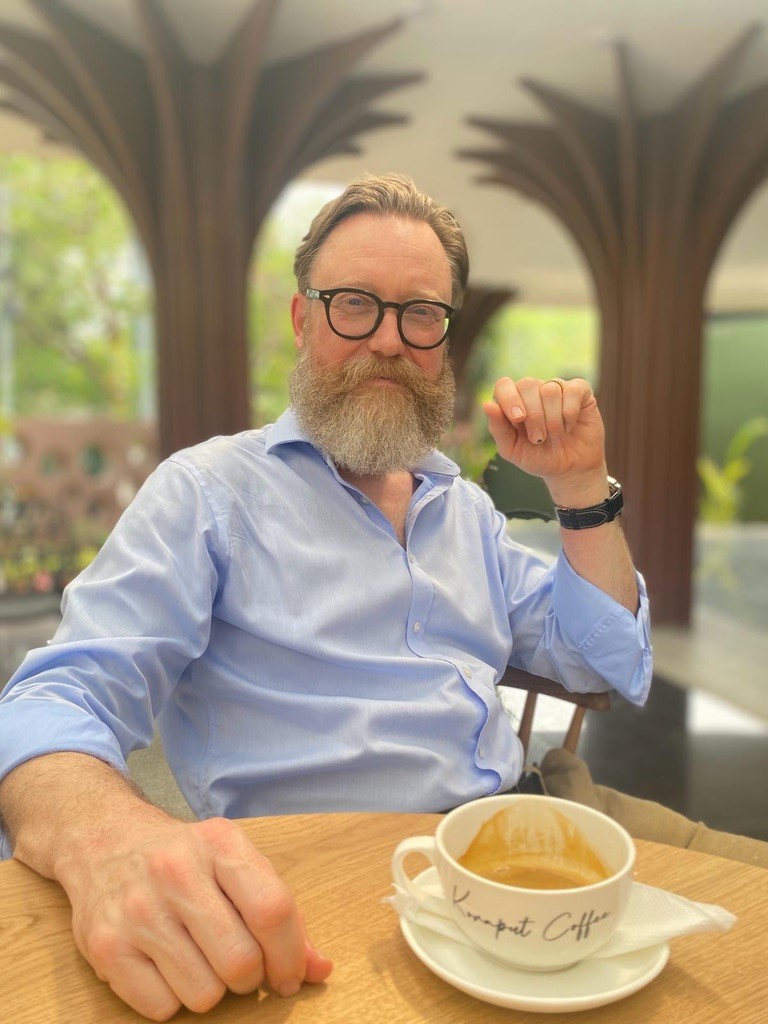Abstract
In early 2020s the European Community released a series of policy briefs and expert reports on ‘Industry 5.0’. Where Industry 4.0 had delivered digital Taylorism, control and the threat of technological unemployment, Industry 5.0 promised a more utopian horizon of digital augmentation and empowerment, placing the human at the centre of innovation, alongside a more resilient and sustainable future for European manufacturing. This seminar will report on some initial findings from a Horizon EU funded project researching the skills and innovation realities of Industry 5.0 in practice: Upskilling for Industry 5.0 Rollout.
‘Upskill’ is a large project, across Sweden, Germany, Italy and the UK, encompassing a range of organizations from large auto-manufacturers to micro-enterprises making hand-crafted musical instruments. The focus of the project is on future skills, using ethnographic and qualitative research methods to understand the innovation process, careers, and shifting skills profiles cutting across this section of European manufacturing. This presentation will report on this empirical work whilst also stepping back to articulate some preliminary conceptual contributions arising from the research.
The first of these asks what ‘Industry 5.0’ is, and why the ‘point-zero’ is important. We suggest that Industry 5.0 is best understood as an empty signifier (Cederström and Spicer, 2014) where the point-zero stands in for a constitutive absence - zero - that discursively functions to hold a space open for a diverse range of stakeholders to project their desires and anxieties about the future of work in European manufacturing. The result is to constitute often contradictory ‘imagined futures’ (Beckert, 2016) that enable a coalition to be built, at least temporarily, around the idea of Industry 5.0. In practice, these disjointed imaginaries often break down when subjected to the stress-test of concrete innovation projects. This part of the talk draws on empirical examples from our ethnographic research to illustrate the more conceptual argument that the political discourse of Industry 5.0, built on the three pillars of sustainability, human-centrism, and resilience, may be unable to suture the contradictions and tensions in the experiential realities of the manufacturing workplace, particularly given the political fractures in present day Europe.
Our second conceptual interpretation of our findings shifts attention to the meso-level of the enterprise, where we recast SMEs as Strange Mixed Ecologies, where skills, human bodies, machines from the 1950s, cobots, algorithms, summer parties, family succession planning, science fiction, AI-algorithms, and YouTube clips constitute disparate elements of a manufacturing eco-system that elude capture by the constantly escape from the Industry 5.0 container that is supposed to transport Europe into the future of work. Whilst most European manufacturing employment is in Small and Medium-sized Enterprises (SMEs), the reality in these organizations is often one of low-capitalisation, locally embedded networks and a range of business concerns and stakeholders that are much more diverse than the conventionally assumed ‘business’ interest of the bottom line. To understand the innovation process, and potential for Industry 5.0 to become a reality, we argue, requires a greater appreciation of the heterogeneity of SMEs as ‘Strange Mixed Ecologies’ constituted by a diverse and precarious set of networked coalitions that make large-scale changes significantly more challenging than the dominant, technologically determinist discourses of innovation policy and practice recognises.
 Chris Land is Professor of Work and Organization at Anglia Ruskin University in Cambridge, in the UK, where he leads the Centre for Research into the Organization of Work and Consumption. In 2024 he published The Handbook of Organizing Economic, Ecological and Societal Transformation with De Gruyter, co-edited by Elke Weik and Ronald Hartz. His research is currently focussed on digital transformations in work but spans a wide range of topics related to the ‘future of work’, including wellbeing and sustainability, the resurgence of ‘craft work’ as a counter-hegemonic imaginary of the future of work, and the articulation of work along unequal global supply chains.
Chris Land is Professor of Work and Organization at Anglia Ruskin University in Cambridge, in the UK, where he leads the Centre for Research into the Organization of Work and Consumption. In 2024 he published The Handbook of Organizing Economic, Ecological and Societal Transformation with De Gruyter, co-edited by Elke Weik and Ronald Hartz. His research is currently focussed on digital transformations in work but spans a wide range of topics related to the ‘future of work’, including wellbeing and sustainability, the resurgence of ‘craft work’ as a counter-hegemonic imaginary of the future of work, and the articulation of work along unequal global supply chains.
Industry 5.0 and automation: the European dream of a human centred, sustainable, and resilient future of work
Abstract
In early 2020s the European Community released a series of policy briefs and expert reports on ‘Industry 5.0’. Where Industry 4.0 had delivered digital Taylorism, control and the threat of technological unemployment, Industry 5.0 promised a more utopian horizon of digital augmentation and empowerment, placing the human at the centre of innovation, alongside a more resilient and sustainable future for European manufacturing. This seminar will report on some initial findings from a Horizon EU funded project researching the skills and innovation realities of Industry 5.0 in practice: Upskilling for Industry 5.0 Rollout.
‘Upskill’ is a large project, across Sweden, Germany, Italy and the UK, encompassing a range of organizations from large auto-manufacturers to micro-enterprises making hand-crafted musical instruments. The focus of the project is on future skills, using ethnographic and qualitative research methods to understand the innovation process, careers, and shifting skills profiles cutting across this section of European manufacturing. This presentation will report on this empirical work whilst also stepping back to articulate some preliminary conceptual contributions arising from the research.
The first of these asks what ‘Industry 5.0’ is, and why the ‘point-zero’ is important. We suggest that Industry 5.0 is best understood as an empty signifier (Cederström and Spicer, 2014) where the point-zero stands in for a constitutive absence - zero - that discursively functions to hold a space open for a diverse range of stakeholders to project their desires and anxieties about the future of work in European manufacturing. The result is to constitute often contradictory ‘imagined futures’ (Beckert, 2016) that enable a coalition to be built, at least temporarily, around the idea of Industry 5.0. In practice, these disjointed imaginaries often break down when subjected to the stress-test of concrete innovation projects. This part of the talk draws on empirical examples from our ethnographic research to illustrate the more conceptual argument that the political discourse of Industry 5.0, built on the three pillars of sustainability, human-centrism, and resilience, may be unable to suture the contradictions and tensions in the experiential realities of the manufacturing workplace, particularly given the political fractures in present day Europe.
Our second conceptual interpretation of our findings shifts attention to the meso-level of the enterprise, where we recast SMEs as Strange Mixed Ecologies, where skills, human bodies, machines from the 1950s, cobots, algorithms, summer parties, family succession planning, science fiction, AI-algorithms, and YouTube clips constitute disparate elements of a manufacturing eco-system that elude capture by the constantly escape from the Industry 5.0 container that is supposed to transport Europe into the future of work. Whilst most European manufacturing employment is in Small and Medium-sized Enterprises (SMEs), the reality in these organizations is often one of low-capitalisation, locally embedded networks and a range of business concerns and stakeholders that are much more diverse than the conventionally assumed ‘business’ interest of the bottom line. To understand the innovation process, and potential for Industry 5.0 to become a reality, we argue, requires a greater appreciation of the heterogeneity of SMEs as ‘Strange Mixed Ecologies’ constituted by a diverse and precarious set of networked coalitions that make large-scale changes significantly more challenging than the dominant, technologically determinist discourses of innovation policy and practice recognises.
 Chris Land is Professor of Work and Organization at Anglia Ruskin University in Cambridge, in the UK, where he leads the Centre for Research into the Organization of Work and Consumption. In 2024 he published The Handbook of Organizing Economic, Ecological and Societal Transformation with De Gruyter, co-edited by Elke Weik and Ronald Hartz. His research is currently focussed on digital transformations in work but spans a wide range of topics related to the ‘future of work’, including wellbeing and sustainability, the resurgence of ‘craft work’ as a counter-hegemonic imaginary of the future of work, and the articulation of work along unequal global supply chains.
Chris Land is Professor of Work and Organization at Anglia Ruskin University in Cambridge, in the UK, where he leads the Centre for Research into the Organization of Work and Consumption. In 2024 he published The Handbook of Organizing Economic, Ecological and Societal Transformation with De Gruyter, co-edited by Elke Weik and Ronald Hartz. His research is currently focussed on digital transformations in work but spans a wide range of topics related to the ‘future of work’, including wellbeing and sustainability, the resurgence of ‘craft work’ as a counter-hegemonic imaginary of the future of work, and the articulation of work along unequal global supply chains.
 Chris Land is Professor of Work and Organization at Anglia Ruskin University in Cambridge, in the UK, where he leads the Centre for Research into the Organization of Work and Consumption. In 2024 he published The Handbook of Organizing Economic, Ecological and Societal Transformation with De Gruyter, co-edited by Elke Weik and Ronald Hartz. His research is currently focussed on digital transformations in work but spans a wide range of topics related to the ‘future of work’, including wellbeing and sustainability, the resurgence of ‘craft work’ as a counter-hegemonic imaginary of the future of work, and the articulation of work along unequal global supply chains.
Chris Land is Professor of Work and Organization at Anglia Ruskin University in Cambridge, in the UK, where he leads the Centre for Research into the Organization of Work and Consumption. In 2024 he published The Handbook of Organizing Economic, Ecological and Societal Transformation with De Gruyter, co-edited by Elke Weik and Ronald Hartz. His research is currently focussed on digital transformations in work but spans a wide range of topics related to the ‘future of work’, including wellbeing and sustainability, the resurgence of ‘craft work’ as a counter-hegemonic imaginary of the future of work, and the articulation of work along unequal global supply chains.